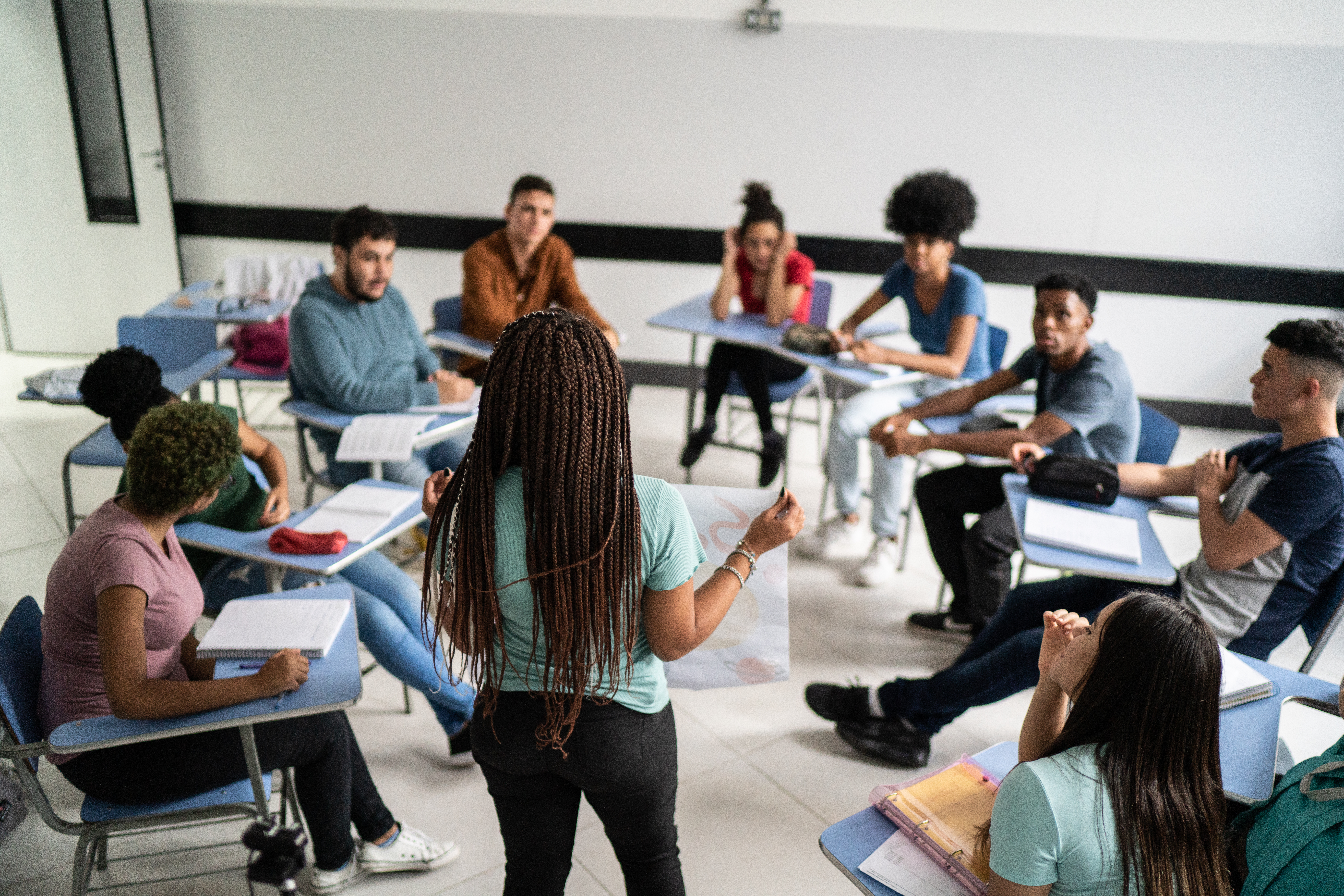New in the Washington Post: Education Lab finds promising results from restorative practices in schools
New research from the Education Lab finds that restorative practices in schools can significantly reduce student arrests, increase student perceptions of belonging and school safety, and decrease arrests for violent offenses.

New research from the University of Chicago Education Lab finds that restorative practices in schools can significantly reduce student arrests, increase student perceptions of belonging and school safety, and decrease arrests for violent offenses.
The study, which evaluated the effect of restorative practices (RP) implemented across Chicago Public Schools’ (CPS) high schools beginning in the 2013-2014 academic year, suggests RP is generating genuine, positive changes in underlying student behavior.
Read more about the Education Lab’s newest research – covered recently in the Washington Post – on the promise of restorative practices.

Our new NBER working paper, by Anjali Adukia, PhD; Ben Feigenberg, PhD; and Fatemeh Momeni, PhD, analyzed the impacts of the shift toward restorative practices (and away from suspensions and expulsions) in 73 high schools within the CPS system.
Schools that implemented RP policies saw a 35% reduction in in-school student arrests and a 15% reduction in out-of-school student arrests, with declines for both violent and non-violent offenses.
Programmatic benefits were particularly large for Black students, although the authors also found evidence that Latino male students’ test scores may have declined in response to RP adoption. Future research is needed to understand why students might have been affected in different ways.
This study provides the first causal evidence of the effectiveness of RP in schools, and is a promising tool for policymakers and school officials as we work to keep students safe, supported, and learning.
Please feel free to share this exciting new research far and wide, and of course, don’t hesitate to reach out with any questions.
This study was made possible by generous financial support from the Becker Friedman Institute for Economics at the University of Chicago, the National Academy of Education, the Spencer Foundation, the Successful Pathways from School to Work initiative of the University of Chicago funded by the Hymen Milgrom Supporting Organization, and the William T. Grant Foundation.
